
U Ko Ni, a prominent Muslim lawyer, was shot dead upon his arrival at the Yangon airport from a trip to Indonesia,
Yangon, Myanmar, MINA – It has been a year since prominent Muslim lawyer Ko Ni was assassinated, however, Aung San Suu Kyi is yet to utter a single word to mark the first death anniversary of the man credited with enabling her to become the country’s state counselor.
While the Nobel prize winner did term the killing “a great loss for the party” a month after the murder on Jan. 29, 2017, Suu Kyi, who has in recent times faced strong criticism for her continued silence on the plight of persecuted Rohingya Muslim community, appears to be not pushing for all the facts of the case to come to surface by her stony silence.
The assassination of Ko Ni continues to be shrouded in mystery despite the fact that the alleged gunman who pulled the trigger at Yangon International Airport has been in police custody since late February 2017 along with three other suspects who supposedly paid him for the killing.
Gunman Kyi Lin, who was arrested shortly after the shooting, has reportedly confessed to having been hired by a group of three ex-military officers and a businessman.
Also Read: UN Experts Warn Right Violations in Kashmir by Indian Authorities
Three alleged co-conspirators Zeya Phyo, Aung Win Zaw and Aung Win Tun were arrested in February 2017; however, the suspected group leader, Aung Win Khaing, remains at large. The exact motive of the killing, which took place after Ko Ni had called for further amendments to the constitution, remains unclear.
Man of humble origins
Ko Ni was a man of humble origins. He was born in a small town of Katha in central Sagaing region in 1952. He was the son of a Muslim Bengali father from India and a Burmese mother, according to his friends and family members.
“His father came from India when he was with the British Indian Army in the early 1990s. His mother was a Myanmar Buddhist,” said another prominent Muslim lawyer Robert San Aung, who was honored with Martin Ennals Award in 2015 in recognition of his works as one of the country’s top human rights defenders.
Also Read: At Least Nine Children and One Woman Killed in Pakistani Airstrike on Afghanistan
San Aung said he had known Ko Ni since 1974 when he arrived at University of Yangon to study law. Ko Ni used to be a lecturer there from 1976 to 1979, he added.
“He was a good friend of mine as well as like my brother. He was good at arguments. I knew he would become a good lawyer,” he said.
But Koi Ni was not always into activism.
“He was not an activist while I was there [at the university],” he said, adding that Ko Ni had never participated in any demonstration against the junta while he himself was imprisoned six times between 1974 and 2010.
Also Read: Pakistan Condemns Israeli Settler Attacks in West Bank, Al-Aqsa Storming
“He was just interested in laws, especially in studying various constitutions. I was the first person he would discuss when he found something, a confusion or a loophole, in a constitution,” San Aung added.
Ko Ni established his own Laurel Law Firm in 1995. During his career, he oversaw more than 900 criminal cases and 1,400 civil cases.
He wrote several articles on many subjects, including the constitution, rule of law and civil rights in Myanmar. He also published six books: Whose fingerprint is this? (published in 2010); How shall we vote in the upcoming election? (2012); Article collections on Rule of Law (2012); How shall we amend the 2008 Constitution (2013); What is PR? Quintana, Myanmar and 1982 Citizenship Law (2013); and Democratic Elections, Fraud and Public Rights (2015).
Suu Kyi’s strong supporter
Also Read: China Criticizes US-Drafted UN Gaza Resolution as Vague, Abstains from Vote
Ko Ni, like many others in the country, used to be a staunch supporter of Suu Kyi and her party NLD since after the military’s brutal crackdown on mass movement against the junta in 1988.
He joined the party only after the NLD saw a landslide in the 2012 by-elections.
“He usually made strong criticism of the 2008 constitution. He believed it was time to start working for an amendment. That’s why he joined the party,” Ko Ni’s eldest daughter, Yin New Khaing, told Anadolu Agency.
After joining the party as legal adviser to party leader Suu Kyi, he was appointed member of the Legal Advisory Committee and the Central Legal Aid Committee. He was also appointed Central Committee Member for Constitutional Amendments.
Also Read: Former Bangladesh PM Sheikh Hasina Sentenced to Death
“He seemed really happy at finding ways to amend the constitution in those days,” she recalled.
“And he really believed he could help the NLD in amending the constitution.”
Ko Ni, who was often targeted by nationalist groups because of his religion as well as his expertise in finding loopholes in the junta-draft constitution, was the one who enabled a constitutional way for Suu Kyi to become the country’s state counselor.
The previous constitution had barred Suu Kyi from running for the presidency.
Also Read: Pakistan Declares State of War After Car Bomb Incident
After another NLD landslide in 2015 general elections, eyes were on Suu Kyi to see if she could amend Article 59(f) of the constitution that was stopping her from becoming the president.
Shortly after the election victory, Ko Ni made a landmark comment that made the military and the then ruling military-back Union Solidarity and Development Party very angry.
“There is an informal way [to amend the constitution] in which we have to enact a special law, temporarily suspend that clause [Article 59-f].
“This special law can be enacted by a majority vote [51 percent] in the Union Parliaments,” Ko Ni had told journalists before the NLD-led government took office in March 2016.
Also Read: Jakarta Hosts Gala Dinner for World Peace Forum Delegates
It was only after he had pointed to such a way forward that a new top position called “State Counselor” was created in April 2016 for Suu Kyi to oversee Myanmar’s Cabinet.
NLD leader U. Nyan Win confirmed Ko Ni’s “decisive role” in establishing that position for Suu Kyi.
“He noticed that the constitution doesn’t state such a top position can be created or not,” he told Anadolu Agency by phone on Thursday.
“Then we drafted a bill for the position so that she [Suu Kyi] could effectively run the Cabinet,” he said.
Also Read: Indonesian Minister Urges Synergy Between Wasathiyah Islam and Chinese Wisdom
Nyan Win said the party continued to miss the Muslim lawyer’s contributions.
“It’s a major loss for us, especially in our effort to amend the constitution,” he added. (T/RS5/RS1)
Mi’raj Islamic News Agency (MINA)
Also Read: New Delhi Covered in Toxic Smog: Residents Say ‘We Can Hardly Breathe’





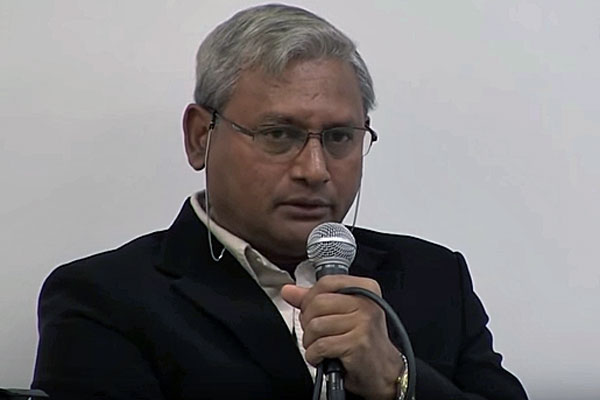




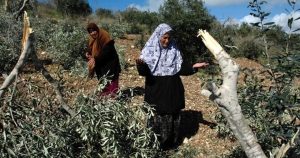




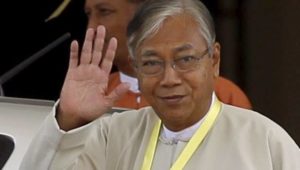
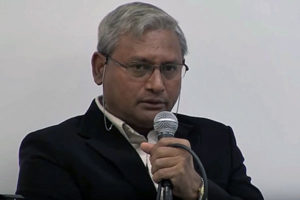



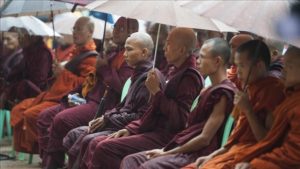













 Mina Indonesia
Mina Indonesia Mina Arabic
Mina Arabic